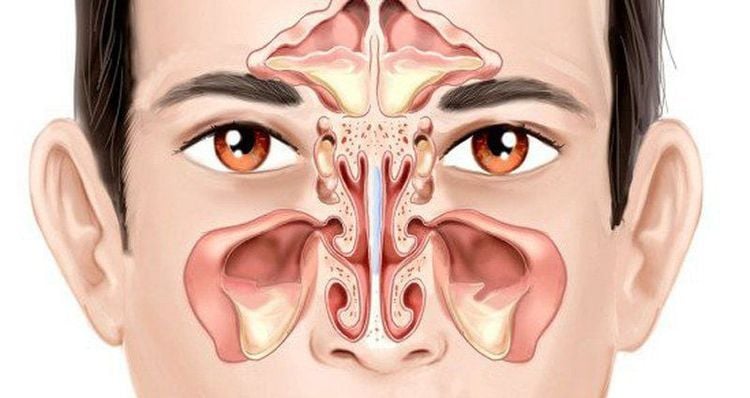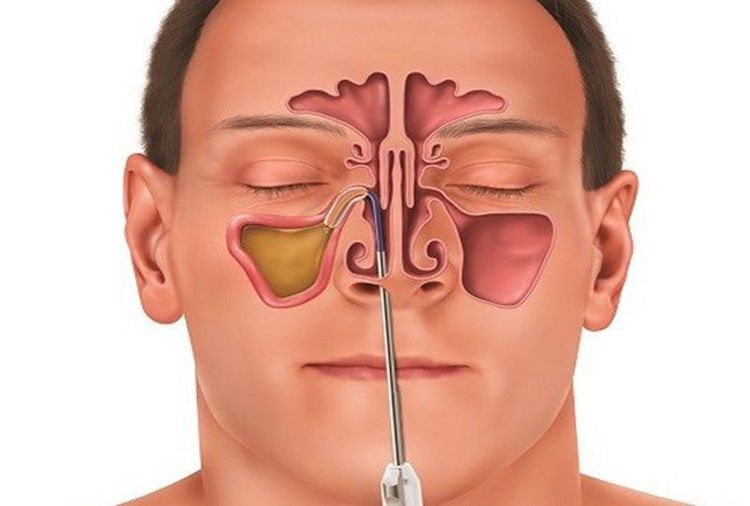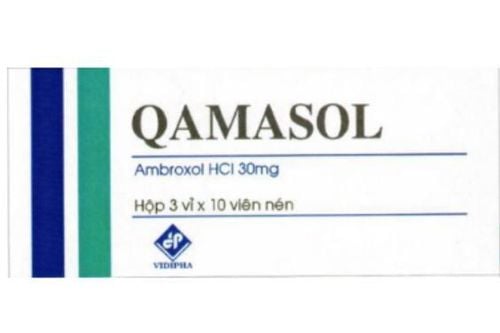This is an automatically translated article.
The article was professionally consulted by Specialist Doctor of Otolaryngology - Department of Medical Examination and Internal Medicine - Vinmec Hai Phong International Hospital.
Endoscopic sinus surgery is very popular today and has almost completely replaced the classic surgical methods of the past. The advantages of endoscopic sinus surgery are fast implementation time, high efficiency, safety, few complications, quick patient recovery.
1. When should sinus surgery?
The sinuses are a system of hollow cavities located in the bones of the craniofacial region. These sinuses are located near the nose and all have openings into the nose so that secretions from the sinuses can escape. In total, there are 5 types of sinuses: maxillary sinus, frontal sinus, anterior ethmoid sinus, posterior ethmoid sinus, and sphenoid sinus. The sinuses have an important function, helping to lighten the mass of the bones of the head and face, warming the air before entering the lungs, and resonating sound to create a unique voice for each person.

Sinusitis is a condition in which one or more sinuses become inflamed. Inflammation causes the lining of the sinuses to swell, the sinuses are blocked, the formation of pus, the patient has a runny nose, headache, discomfort. There are two types of sinusitis, acute sinusitis and chronic sinusitis. Acute sinusitis usually does not last more than 4 weeks. While chronic sinusitis lasts more than 12 weeks, recurring episodes occur throughout the year. If sinusitis is not treated promptly, it will lead to many dangerous complications on the respiratory organs, eyes, cranial nerves,...
Sinus surgery is a method of treating sinusitis indicated in the treatment of sinusitis. Cases:
Patient has chronic rhinosinusitis, failed medical treatment, recurred 4-5 times a year. Symptoms of sinusitis affect the patient's quality of life and work. Complications of advanced sinusitis threaten the patient's health. Fungal sinusitis: with fungal tumor, invasive fungus Patient with complicated acute rhinosinusitis. Patients with sinusitis due to abnormal nasal anatomical structure such as deviated nasal septum, nasal polyps, septal spines, nasal peduncle hypertrophy, maxillary sinus collapse, nasal peduncle Conchabullosa, ...
2. Advantages of sinus surgery
Currently, the method of endoscopic sinus surgery (FESS: Functional Endoscopic Sinus Surgery) is very popular, replacing almost all previous classic surgical methods. Minimally invasive endoscopic surgery, performed only inside the nose, no incision outside the skin. Through the video image obtained from the camera inserted into the sinuses, the doctor will use the tools specifically for endoscopic surgery to perform procedures to widen the sinus openings, restore drainage in the sinuses, orthopedics. nasal septum, cut the nose,...depending on the patient's condition.
The advantages of endoscopic sinus surgery are:
Clear endoscopic images are obtained, helping the doctor to accurately assess the medical condition. If the previous radical surgery, the mucosa was completely removed, then with laparoscopic surgery, the doctor only removed the pathology, preserving the maximum part of the healthy mucosa and the pathological mucosa, but assessed recoverable. The restored sinus mucosa is the basis of healing. Laparoscopic surgery is safe, relieves pain, has few complications, and the patient recovers quickly. After surgery, when the condition is stable, the patient can go home the same day without staying in the hospital. The aesthetic factor is ensured because there is no skin incision. High efficiency: most of the patients after surgery have a marked improvement in their condition.

3. What to prepare before sinus surgery?
Arrange schedule, spend time before and after surgery to prepare for surgery and recover after surgery. Two weeks after surgery is a very important time in the recovery process, so nothing important should be done during this time. Smoking makes patients more susceptible to complications after surgery. Therefore, to prepare for sinus surgery, patients and their family members should quit smoking to ensure their health. The patient will have a general examination to make sure the patient is healthy enough to perform surgery. Patients need to fast before sinus surgery for at least 6 hours, do not drink water for at least 2 hours before surgery. Patients need to inform the doctor about the medications they are taking. Anticoagulants must be discontinued prior to surgery. For women, sinus surgery should not be performed during menstruation, because during menstruation, the lining of the nasal cavity will become congested, increasing the risk of bleeding during and after surgery. Keep your mind at ease, don't be too stressed or worried.
4. What should be done after rhinoplasty?
After surgery, the patient needs to take medicine as prescribed by the doctor, clean the nose with physiological saline, and schedule a follow-up examination.
In the first two weeks after rhinoplasty, the patient must avoid smoking, dust, and heavy blowing of the nose. Do not do heavy work, including intense exercise and sports. Avoid contact with people who have the flu. Do not drink a lot of alcohol, do not swim.
To register for examination and treatment at Vinmec International General Hospital, you can contact Vinmec Health System nationwide, or register online.













